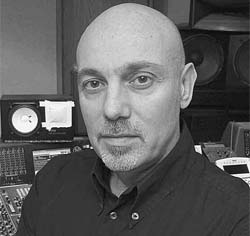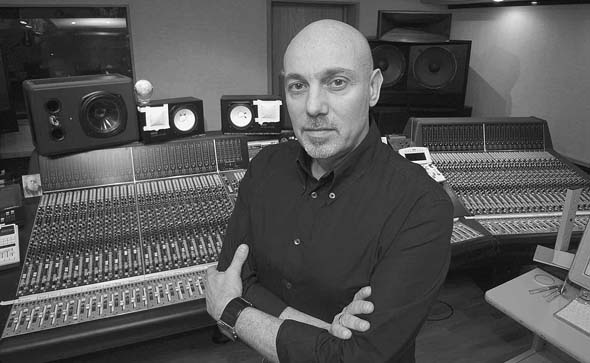
Frank was all about breaking rules and challenging the norm. I learned pretty quickly during my first few days with him that you just didn’t say no. [laughs] He really had a great sense of the big picture.
Before I even had a chance to make a statement or try to do things my way, I realized that this was a guy who could see five steps down the line, so I had to learn to trust him and know that in the end it would be okay.
A lot of producers and engineers I’ve talked to have stressed how important it is to be ready when your big break comes. Looking back with hindsight, what preparations had you made to be ready for that moment?
To be honest, I didn’t know where the Frank thing would lead. I was fortunate in that I fell in with an artist who was a workaholic and went from one album to the next.
But I didn’t know at the time that this was going to be a break; I thought it would be a very transitory thing, that I would work with Frank for however many weeks and then go back to Cherokee and resume my assisting gig.
In terms of preparation, I’m not so sure that I did anything specific, but the one thing I tell people who want to become an engineer or producer is, “learn everything.” Not just engineering and music, but also learn about art, poetry, literature, psychology. The job really involves a lot of things, and it changes from project to project.
As someone who appreciates good sound, do you ever find it frustrating to work with an artist like Jack White, someone who’s into rough edges? Do you ever find yourself thinking, “if only we could work on this mix a little more we could get it sounding so much better?”
Yes, and there are many times where I will say something just like that: “Give me another half hour and let me fix this and fix that.” But the thing that makes rough mixes good is that you just kind of go for it, as opposed to laboring over it and making sure that every corner is polished and every little detail is in place.
That’s why they often find their way onto records, and that’s one of the things I respect about Jack: he’s so much about spontaneity and honesty – the reality of something – that he doesn’t want to spend a lot of time on sounds, on mixes, on anything.
Jack is a big fan of old-school recording; he’s the kind of guy who thinks that nothing’s sounded good since 1972. [laughs]

